Review for Love Thy Neighbour - The Complete Series
‘Love Thy Neighbour’ may leave you gasping when viewed through contemporary eyes but, in common with series like ‘On the Buses’, it accurately reflected the realities of contemporary British working class life in the early 1970’s – albeit exaggerated for comic effect.
What’s more, it was hugely popular, despite being about as politically incorrect as you could imagine a series to be. But if you are able to set your modern dials to one side, and view this in the context of the times, what emerges is far from a mean spirited, racist (and sexist) programme, but actually one with great humour, warmth and fun.
No one would want to defend its use of highly offensive racist ideas today – it would be unthinkable and rightly so – but there is absolutely no doubt that, despite crossing the line on occasion, the butt of the show’s derision is the work-shy, highly hypocritical racist, Eddie Booth (Jack Smethurst).
You could even argue that, at the time, the series served to show the ridiculousness of his entrenched and misinformed views. Whatever the case, it’s certainly very prescient today with many of the same old issues about immigration being run out again and again.
Before I go on to look at the show’s positives, I should also acknowledge that British humour of the day was always full of grotesque stereotypes of every sort – whether racist depictions of Asian and black people, or stay at home wives, or sexy secretaries or lazy union protected workers, they’re all here. If you find yourself offended by that, then you should give this series a wide berth. It’s a series that has to be seen in its historic context or not at all. It’s notable that the cast (who are all still alive and remain friends to this day) all stick to their party line that the series did more to break down racism and sexism than it did to promote it. You may not agree but it is certainly a valid point of view.
Since its very first episode, Love Thy Neighbour consistently appeared in the top three programmes of the week throughout the majority of its eight-series, 54 episode run from 1972 – 1976. They’re all present and correct in this set, and completely uncut and re-mastered from the best sources available, along with the unaired pilot episode, the Christmas 1972 short sketch for All Star Comedy Carnival, the 1973 New Year Special and a brand-new transfer of the 1973 feature film from its original film elements in its as-exhibited aspect ratio. So when you buy the set, you but every last drop, which is something I wholeheartedly approve of.
I managed to binge-watch the whole series without ever feeling that it was getting overly tedious (though it is a little repetitive and was never intended to be watched that way) and, along with the eye-watering cringe moments, it does have some laugh aloud moments too. Eddie Boyle is a great comic character, perhaps a little over-played by Smethurst who is rarely seen without a cigarette or a pint, another reflection of the day. In some strange way, his deluded, righteous reasoning and delivery reminded me vaguely of Tony Hancock, although I shouldn’t overstate that influence. Whatever the case, he certainly made the part his own.
When Bill (Rudolph Walker of EastEnders fame) and Barbie Reynolds (Nina Baden-Semper) move in to the modest Twickenham terraced house next door to his (another reflection of the times – each would fetch a million pounds today), Booth is incensed. He sees it as the thin end of the wedge and believes that they are primitives whose intellect is vastly inferior to his and when Bill also takes up work at the factory where Eddie works, it’s white versus black every hour of the day.
Hypocritically, he has the hots for the very glamorous Barbie and is often found sneaking a peek at her whenever he can. His long suffering wife, Julia Booth (played with superb drollness by Kate Williams also of Eastenders) manages to puncture Eddie’s pomposity with a single withering look.
Despite the men battling every minute of every day, insulting each other in (more or less) equal measure, the wives get on fine – both exasperated at their husband’s behaviour, and particularly Eddie who, despite many handshakes and ‘peace-making’ moments with Bill, always lets the team down with his entrenched racist views.
Some of the other characters are worth a mention too – particularly Eddie’s sorry bunch of workmates who he spends his evenings with, supping pints in the working men’s club, spawning the show’s most famous catch-phrase from his drippy mate Jacko; ‘I’ll have a half’.
As the series progresses, Bill and Barbara appear as more upwardly mobile Tory voters, soon getting their own car for example or going on expensive holidays thanks to Bill’s work ethic – he does overtime whilst Eddie is clearly too idle to touch it.
What’s curious is that, despite Eddie frequently referring to Bill as ‘Sambo or ‘Nig-Nog’, and Bill calling Eddie a ‘white honky’, the series never quite descends to the really dark side of racism. It is always portrayed as just plain dumb.
In more than one episode, Bill plays up to Eddie’s misguided fears about Voodoo and boiling human’s in pots by enacting it out with Eddie as the frightened victim – always followed by Bill’s cackling laugh at Eddie, one shared I assume by most viewers.
I think the show may have been moderately controversial even at the time because, unlike ‘On the Buses’ for example, with its blatantly sexist humour, I don’t believe the series ever got its own comic strip in Look-In, though I may be wrong about that.
Whatever the case, if you remember the series with affection, or are interested in a comic reflection of the realities of life in the early 1970’s, and you go in with your eyes wide open, you may enjoy this series as much as I did. It’s certainly not perfect and the Jury is definitely out on whether it crosses a dangerous line, but it is what it is and should certainly not be air-brushed out of history (as it recently was in a BBC ‘All-time Greatest Sit-Coms’ show).
This 'video essay', published by Network, probably sums it up more eloquently than I can.
So there you have it - facts and all!
This set is absolutely complete, even including the film in its original aspect ratio, and the image quality is more than acceptable throughout. You even get the feature film spin-off which is actually like an extended episode as well as one or two Christmas specials.
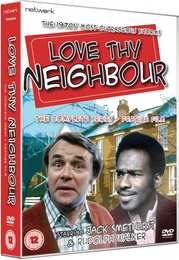
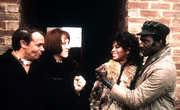
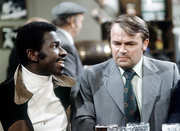
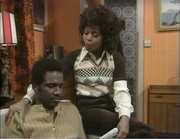
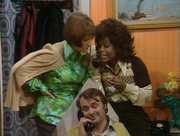
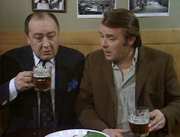
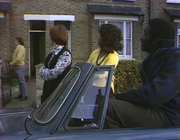
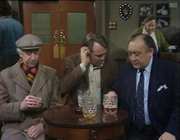
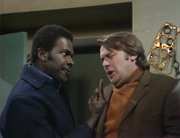
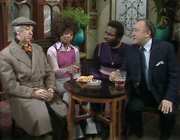
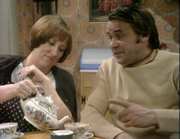
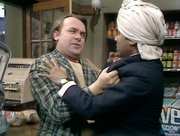
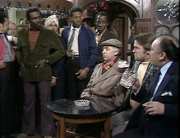












































Your Opinions and Comments
Be the first to post a comment!